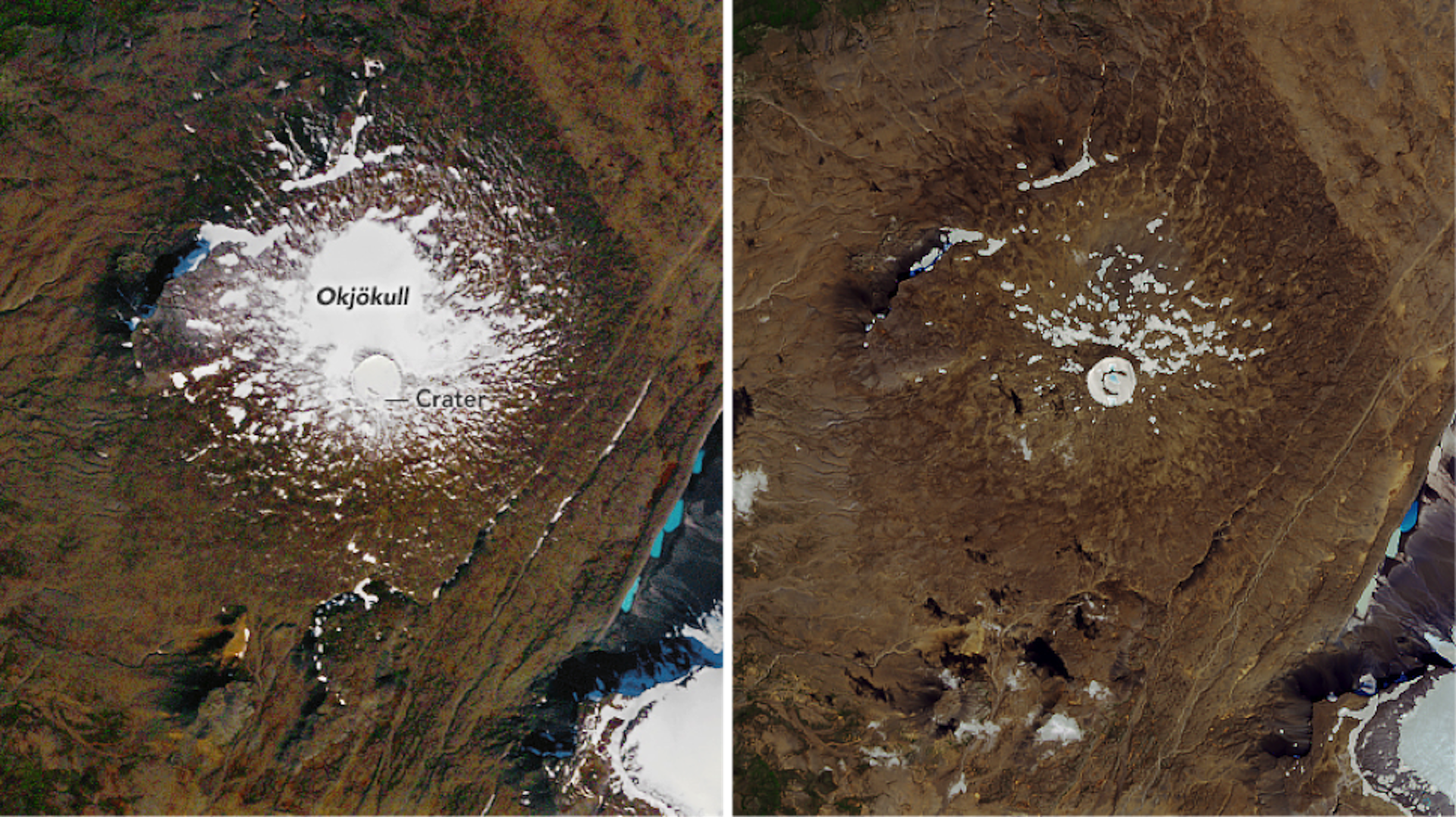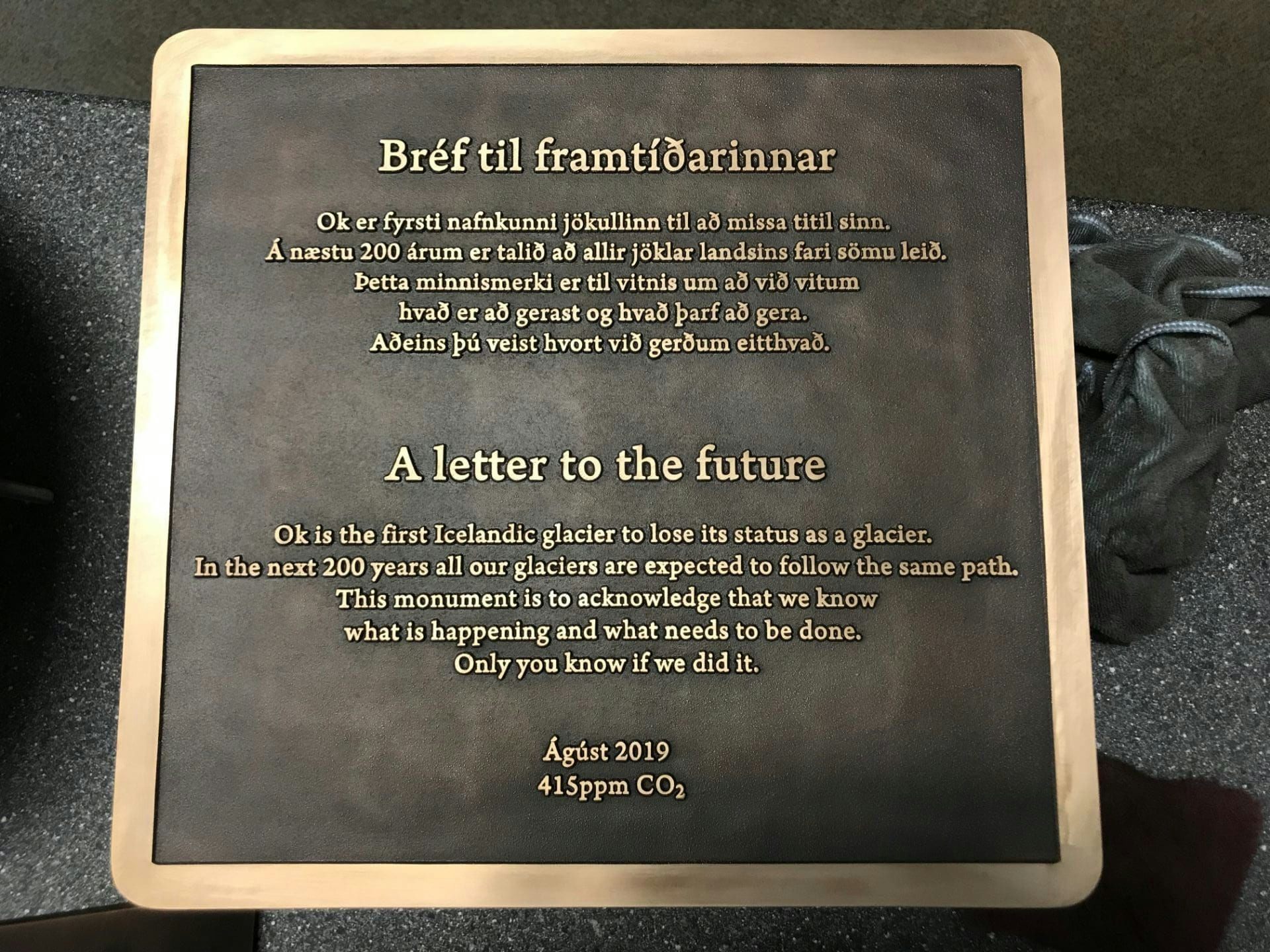Author:
Rupert Read
(MENAFN- The Conversation) Death certificates and commemorative plaques aren't something you'd normally associate with a glacier. But that is exactly how Iceland recentlymournedthe loss of 700-year-old Okjökull, the first of its major glaciers todie .
This is just one early example of events we will encounter more and more often as the hot new world we are creating slowlydestroys ecosystemsandlivelihoods . But acknowledging thegrowing emotional trauma and grieffelt at present and future environmental tragedies may yet be the kick we need to limit their reach.
Griefradically differsin its logic from ordinary sadness over a loss. If sadness is the response to the removal of an object from the tablecloth that represents a person's lived world, grief results from loss that tears the very fabric of that cloth. In order to repair this hole and emerge from the resulting pain and outrage, the lived world has to be reconfigured.
To grieve though, one must acknowledge the tear in that world. This can take time, and denial is acommonpart of the process of accepting deep loss. This may at first take the form of a temptation toward out-and-out disbelief, and linger as sporadic thoughts and hopes that what was lost, wasn't.
It may seem an irrational reaction, but it's a completely understandable defence mechanism against life-shattering loss. The world without what's been lost is so radically and qualitatively different that the psyche resists accepting reality.
Read more:
Climate change: seeing the planet break down is depressing – here's how to turn your pain into action
While much climate denial owes itself to corruption and vested interests, the avoidance of grief mayexplainwhy many decent and intelligent people arealso temptedtodenythe climatic breakdown humans are causing.
It is, in a certain sense, unimaginable, even absurd, to think of us destabilising our very climate, or thescaleandspeedof change required to stop the slide. It isn't surprising that so many people have been desperately hoping that the science must somehow be wrong, or thatso many moreact as if we can still hope for the continuation of our same old world, rather than the fundamental shift in the way we operate and organise that's required.
From grief to action
It requires sustained strength and attention to gradually turn denial into acceptance and to build a new life. Actions like Iceland's glacier funeral are a vital part of that process. Assymbols of eternity , glaciers have greatcultural significanceon the Nordic island. They're also crucial for tourism andenergy . And at current rates of warming,allof the country's glaciers will suffer Okjökull's fate in the next 200 years, one by one. For Icelanders, emotionally acknowledging this can galvanise the associated grief into action.

Left: Okjökull glacier in September 1986. Right: the now dead glacier in August 2019.
Joshua Stevens/NASA Earth Observatory
It's not an easy process, of course. As marks of our recklessness, the grief in cases such as this is particularly potent and often laden with anger, akin to that of someone close to a murder victim. This glacier ecosystem wasn't 'lost' - to speak of loss here iseuphemistic . It was killed on our watch.
Grief over climate breakdown and the degradation of our natural world is also notably different from grief at the death of a loved one, because it never lessens, let alone goes away. The anthropogenic climate emergency will define our entire lifetime, and deeply impact on all of us soon enough. Because oftime-lagsin the climate system, things will get worse for a long time to come, whatever we do.
Thus, while a healthy reaction to the death of a loved one is to grieve deeply and then gradually to recover, the only recovery from ecological grief that is possible at all is for us to change the world such that our actions no longer deteriorate it.

During Okjökull's funeral residents reminisced, public figures such as Iceland's Prime Minister Katrin Jakobsdottir spoke and presented a death certificate, and this plaque was laid.
Grétar Thorvaldsson & Málmsteypan Hella/Rice University
This is how ecological grief – at the tearing from us of the natural systems we are neither willing nor able to do without – leads to the radical action necessary to bring about a new world.
Given how late the hour is, that meansnot accepting inactionany longer – and that's up to us. In the words of Iceland's commemorative plaque, laid at the base of the dead glacier as a message to the future: 'We know what is happening and what needs to be done. Only you know if we did it.'

Click here to subscribe to our climate action newsletter. Climate change is inevitable. Our response to it isn't.
Climate change denial
ecological grief
MENAFN2108201901990000ID1098908525
Legal Disclaimer:
MENAFN provides the information “as is” without warranty of any kind. We do not accept any responsibility or liability for the accuracy, content, images, videos, licenses, completeness, legality, or reliability of the information contained in this article. If you have any complaints or copyright issues related to this article, kindly contact the provider above.